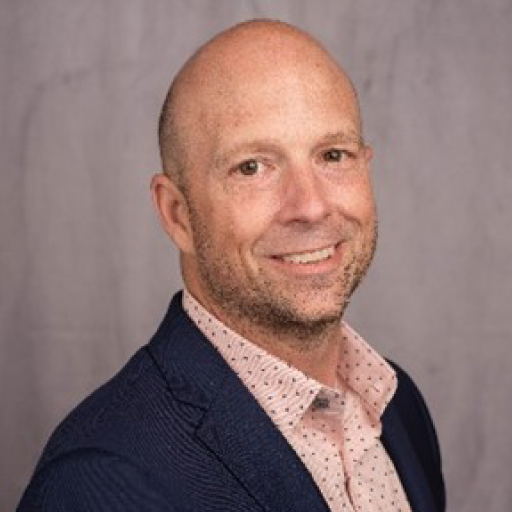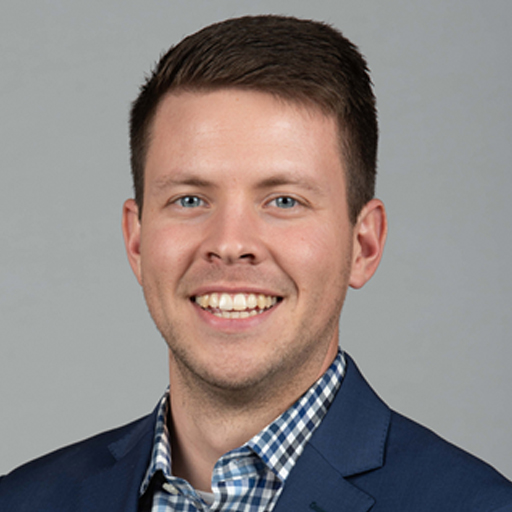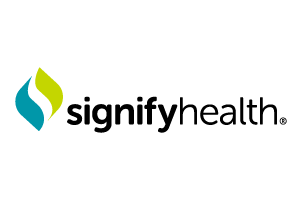SPONSORED CONTENT
Located in rural Peterborough, New Hampshire, Monadnock Community Hospital (MCH) is a critical access hospital that offers comprehensive inpatient and outpatient services and is celebrating its 100th anniversary. MCH joined a Signify Health Accountable Care Organization (ACO) in 2023 to align with the Centers for Medicare & Medicaid Services’ goal of having all Medicare beneficiaries in an accountable care relationship by 2030. Like many of their rural-based peers, they have transitioned from fee-for-service healthcare to value-based care using Signify’s proven population health methodologies and award-winning technology to improve patient care outcomes.
Rural-based providers face particular sets of obstacles that can make healthcare delivery challenging. Rural communities often have limited access to resources, technology, and specialists, while many of the patients in these areas experience concomitant chronic illnesses. This makes for a perfect storm of limited supply with high demand.
For more than 30 years, the 340B program has provided financial assistance to hospitals and other providers serving vulnerable communities to help manage rising prescription drug costs. The program allows 340B participants to stretch limited federal resources to reduce the price of outpatient medications for patients and expand health services to the patients and communities they serve. MCH has been engaged in the 340B program since 2012. In the past year, they have uncovered additional opportunities with the program by utilizing Signify’s 340B referral program, which introduces innovative workflows and technologies to better manage care and track patient prescription use.
Anthony Esgro, Director of the 340B Program at Signify Health and a leading 340B expert and his colleague, Taylor Campbell, 340B Business Development Manager, work to support their clients as they participate in the 340B program. Anthony recently talked with MCH’s Director of Finance, Rochelle Manuel-Sokol, to learn more about her experience so far and how it relates to their goal of putting patients first.
Anthony: What led to the decision to work with Signify on the optimization and referral portion of the 340B program?
Rochelle: We started researching the options that we had and wanted to make sure we were compliant with all the stipulations of the 340B program. A colleague of mine had met someone from Signify at a conference, and he brought this to my attention, and we discussed the opportunities. We really liked what Signify had to offer. We thought it would be a great synergy between the relationship we already had with Signify and as it related to the ACO component. We were intrigued about how we could navigate a program like this and leverage the tools that we currently have and combine it with Signify’s knowledge and expertise. We felt like there were more opportunities for us that we were unaware of.
Anthony: You are about six months into this, how has it gone so far?
Rochelle: The way the project was structured right out of the gate was really beneficial. And what I mean by that is our project lead, Taylor, with Signify, was very communicative. Taylor was able to bring us all together and provide us with insight very quickly. We were able to mobilize on our end to get EMR access and partner with the contract pharmacies. I think the biggest thing for us is seeing the opportunities that exist that we didn’t know about and relying on the expertise that your team has brought to us. This has been second to none. In our first round of the claims activity, we were able to capture about $45,000, and that’s gross fees in addition to the savings relative to the referral program.
Anthony: That’s fantastic. In addition to the revenue is the ability to grab the notes and missing documentation of your patients that is also pulled on the value-based care side of things. Providers are sometimes unaware that the patients are seeing another provider and getting another prescription. Pharmacists don’t always know every medication a patient is taking and that can place a patient at risk for drug interactions.
Rochelle: Exactly, it has already helped us with that care gap, and to identify and note things about patients we had not previously known. But I want to be completely transparent, the first results of the impact of the referral program and its benefits really only occurred over the last month or so. So we’re really in our infancy with the referral program with Signify. I have confidence in more to come.
Anthony: It looks like you’ll gain a little over $20,000 in growth next month.
Rochelle: Yes, and we’re also in the process of partnering with CaptureRx to apply an additional opportunity for Taylor and his team to gain access to that portal. So we can expand this even further. But gleaning more patient information, we can see gaps in care – we can identify those risks. When your team goes through the referral claim process, and they see an example of a care gap or a missing link, is there some sort of follow-through from Signify relative to that encounter?
Anthony: Yes, and that’s part of what we offer. If we’re missing a referral, we provide your team with a care coordination note. This note goes into the patient’s chart and lets your provider know that their patient is seeing someone else for drugs, X, Y and/or Z. And, if you’re missing the note from that provider whom you referred to, we work to get that documentation so you have a record of that visit.
Rochelle: This is inherent to the process of doing the best for our patients.
Anthony: Correct and that’s best practice. Generally we don’t want to capture a referral unless we can document that you’re responsible for the patient’s care which we know you are. But sometimes patients go outside of that and perhaps the chart didn’t show that activity. We try to make sure the documentation is all there. Change and challenges often go hand-in-hand; let’s talk about some challenges you’ve experienced with the 340B program.
Rochelle: During the pandemic, we had received notification from several of the drug manufacturers that we were required to enter into the 340B ESP platform in order to continue to utilize our various contract pharmacies. We elected to do so and as you probably are aware we have now been receiving numerous notices from these manufacturers about being required to designate a single contract pharmacy to access 340B discounts.
Anthony: What kind of financial impact has this had on your organization?
Rochelle: I think it’s too soon to say at this juncture, and this is why it’s so important to our facility to, in order to support our patients, partner with Signify from a compliance perspective, but also from the perspective of whether or not there is something else we can do to help mitigate some of that loss. We’re trying to stay abreast and apprised of all these developments.
Anthony: And from year to year it can change? They set new baselines of your expectations?
Rochelle: Yes, exactly, and that is challenging.
Anthony: What has been the most beneficial aspect of working with Signify on this program?
Rochelle: The opportunity to get this off the ground has been significant. The benefit of having your team partner with us, and the way this has been rolled out. Taylor has been extremely communicative. Anytime any of us has a question, he’s always available and able to enlighten us. We have learned so much about opportunities that we were unaware of. There is a great synergy between this and the ACO – this partnership with Signify is helping us do what’s best for our patients.
Anthony: Do you feel comfortable if you were to be audited?
Rochelle: Yes, and it’s funny because when we first embarked on this journey, that was one of the burning questions I had. Can we lean on Signify in the future if we have to go through an audit? We just went through a mock audit with another firm, and it went well. I don’t have any outward concerns at this time because I know if an audit were to happen, we have the reassurance and confidence from a compliance perspective, and we have support.
Anthony: What would you say to someone who’s not utilizing a referral program but has the opportunity to do so?
Rochelle: I would suggest they look into it, and if it’s right for your team and your organization, go for it. I understand that there’s an IT component and things have to match up, but I would say to them that it is definitely worth your time to explore it.
Anthony: Thank you for talking with me today. Is there anything you would like to add?
Rochelle: I want to acknowledge your team’s efforts on our behalf. This is such an important program for us as a critical access hospital to support our patients. That partnership between finance, pharmacy, leadership, the nursing area, and compliance is critical, and we are making sure we meet on a monthly basis. Taylor has made a big impact by offering resources, support, and solutions. We have developed an internal steering committee for 340B, and I have invited him to attend, and he graciously accepted. He has enlightened us to the inner workings of this program and shown us opportunities that we never knew were there. Working with Signify has been great because we have a partner to help us navigate this – it’s been huge.

Anthony Esgro, director, 340B program at Signify Health, can be reached at aesgro@signifyhealth.com

Taylor Campbell, 340B business development manager at Signify Health, can be reached at tcampbell@signifyhealth.com

Rochelle Manuel-Sokol, director of finance at Monadnock Community Hospital, can be reached at Rochelle.Sokol@mchmail.org




